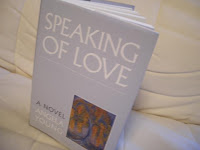
Every now and then, you need a book that is unashamedly silly. And when you're feline like that (a-ha-ha) you need a book about cats. Obviously.
My personal favourite is on Amazon here - Jeffrey Brown's observations are astute, witty and very catty... So, when Molly Brandenburg offered me a review copy of Everyday Cat Excuses, the only answer I was going to give was "Yes! Yes, cats!" I don't really know how I can give a book review of a book like this. Dostoevsky it ain't, but I rather think old Fyodor would have enjoyed flicking through this book.

Those of us who have owned cats, or currently own cats, know that they're not the most active and servile of creatures. They might be able to recognise their own name, but aren't stupid enough to pay any heedance to it. They know when it's dinner time, and the rest of the itinerary is on their terms. So, if you ask them to do something, it's more or less a given that they'll have an excuse...
And so Molly draws cartoons depicting these excuses. An example is pictured - it's the cartoon which is a great deal more polished than mine! My favourites are the little series of "Because I need to go outside."
 "Actually, I need to go inside." "Inside? Craziness - outside for me, please". And so on. (I paraphrase). There is so much to observe in our feline friends. For a novel with a great cat, I recommend Ivy Compton-Burnett's Mother and Son. For an amusing present to a cat lover, do check out either Molly's book, or Jeffrey Brown's (linked to above).
"Actually, I need to go inside." "Inside? Craziness - outside for me, please". And so on. (I paraphrase). There is so much to observe in our feline friends. For a novel with a great cat, I recommend Ivy Compton-Burnett's Mother and Son. For an amusing present to a cat lover, do check out either Molly's book, or Jeffrey Brown's (linked to above).Something properly literary soon, promise!








































